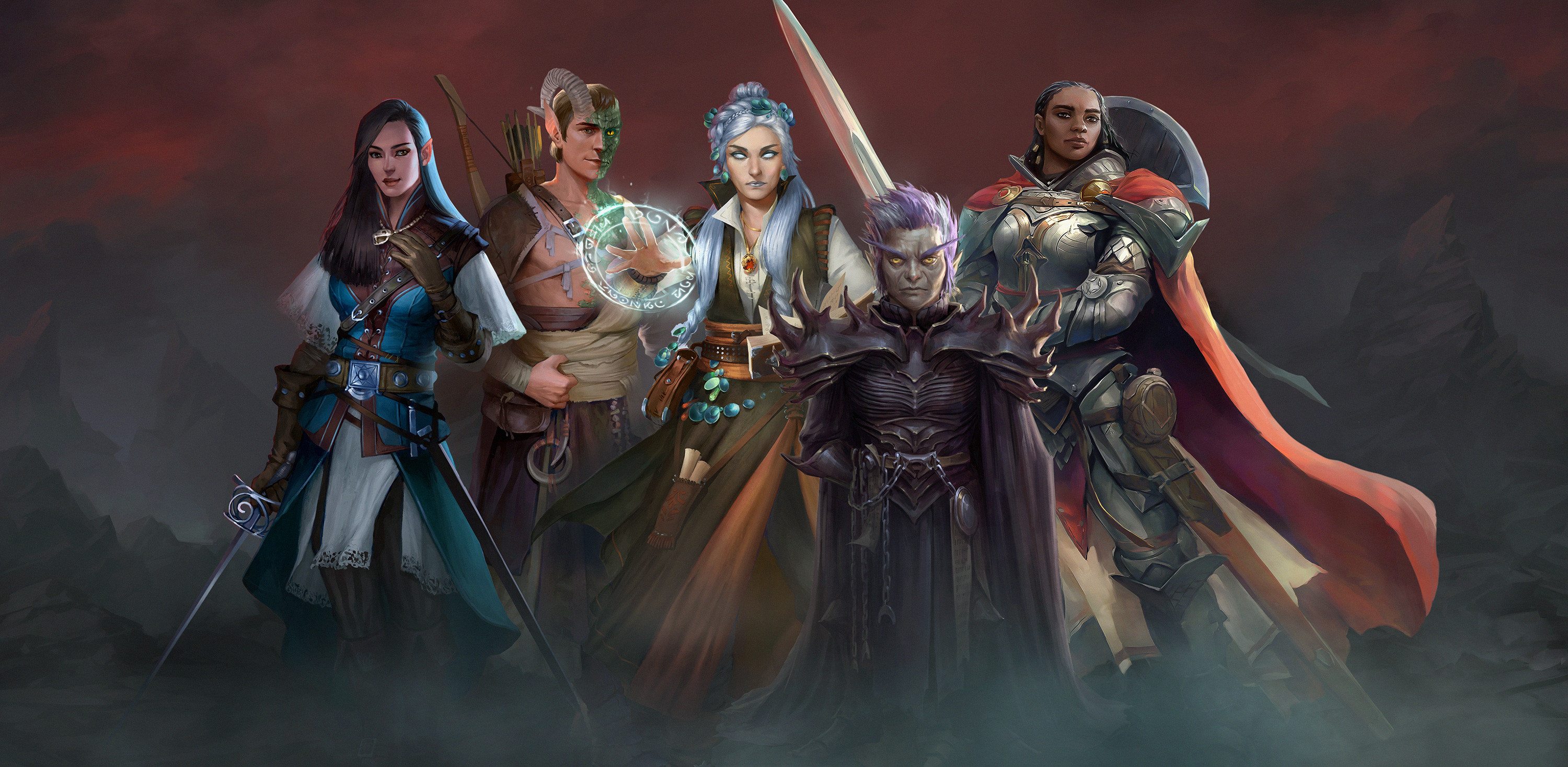Our Verdict
A long game of choose-your-own-chosen-one with high highs to balance the lows.
PC Gamer's got your back
What is it? An old-fashioned RPG so dense it's got gravitational pull.
Expect to pay $50/£43
Developer Owlcat Games
Publisher Meta Publishing
Reviewed on Windows 10, Intel Core i7, 16GB RAM, Nvidia GTX 1060
Multiplayer? None
Out Now
Link Official site
The first boss fight in old-school RPG Pathfinder: Wrath of the Righteous is the character creation menu. It's as daunting as any multi-limbed demon you'll face.
There are 25 classes to choose from, some subdivided into half a dozen archetypes. There are prestige classes you can't choose until you've leveled up and fulfilled certain requirements, which show up during character creation anyway in case you want to plan your build around one. You also choose a race, racial heritage, background, religion, skills, feats, and maybe an animal companion, which gets its own class, skills, and feats.
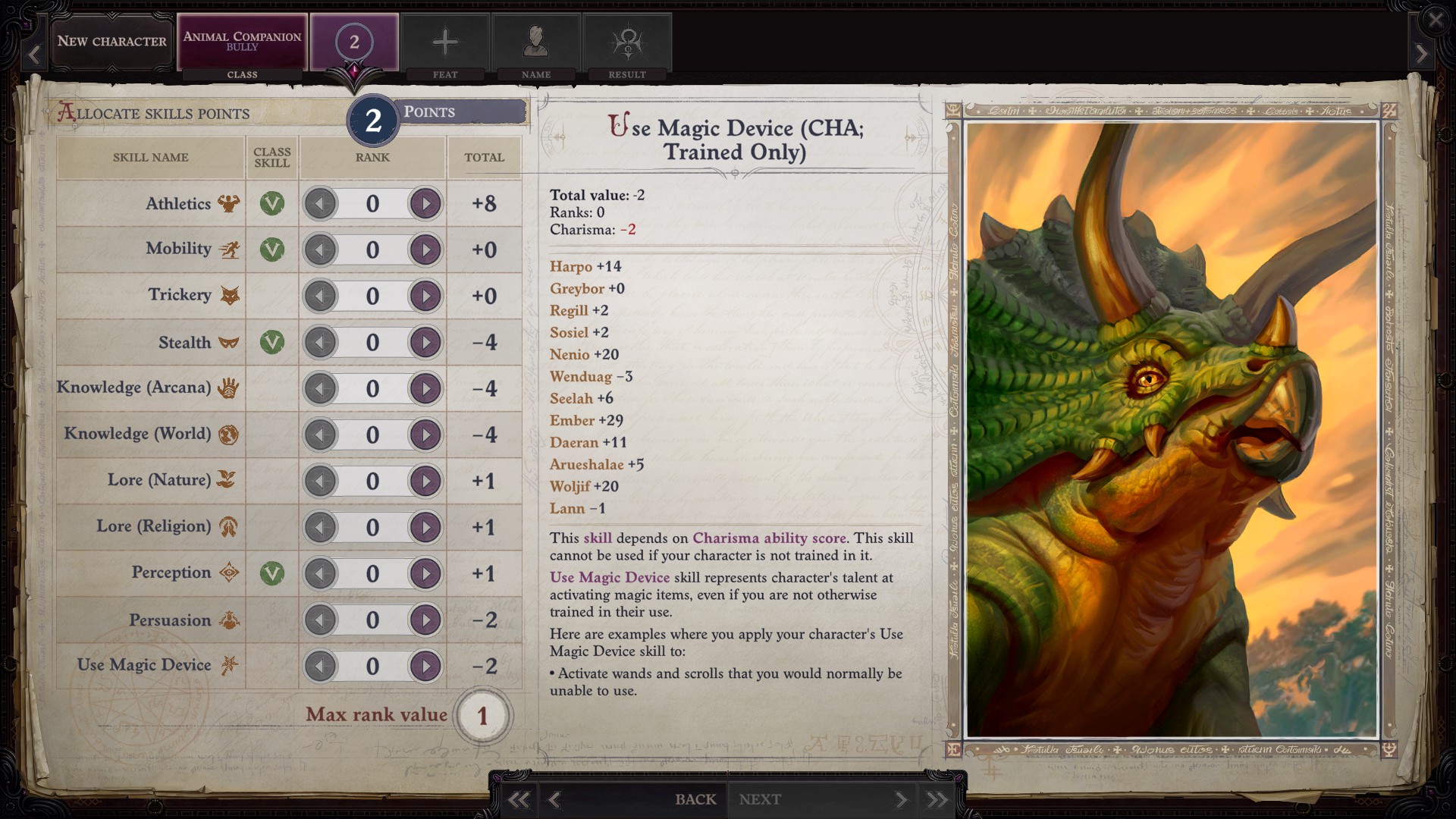
At the end of this process you may well end up with a character who is completely inappropriate for getting what you want out of Wrath of the Righteous and, several hours later, want to restart or respec. Maybe they're too weak for the challenge of Core difficulty if you're keen enough to bother with that, maybe they double up with an early companion and feel superfluous, maybe they have an ability that doesn't work the way you thought and kind of suck. Compared to this, fighting some big water elemental or shadow demon seems easy.
Math of the righteous
Your character, whether a rage-powered bloodrider with a pet smilodon, a halfling knight who charges into battle on a dog, or just an elf who is a wizard—that's cool too—is off to join a crusade against the demons of the Worldwound. Those demons marched through a hole in reality years ago and have been making a mess of the place ever since. Eventually, you'll become the crusade's commander and a mythic hero with incredible powers.
This happens in an isometric RPG that evokes Baldur's Gate so powerfully sometimes I walk under a patch of autumn leaves and think I'm back on the Sword Coast. If you played Pathfinder: Kingmaker you'll be familiar with the effect, though this isn't a sequel to Kingmaker and is in fact a better introduction to the Pathfinder rules. Developer Owlcat Games has learned that tutorial pop-ups are a good thing, and boxes of text will warn if you equip items with bonuses that don't stack or otherwise goof up the arcane rules of the tabletop RPG it's based on.
Better tutorials make combat's flow of numbers a bit easier to keep up with, though it could be presented better. (I will go to the grave not understanding why it shows the unmodified results of dice rolls next to the difficulty target they have to beat, rather than showing the modified number that actually gets compared to the difficulty.) Another thing that smooths out combat is the option to switch between turn-based and realtime-with-pause mode, even mid-fight. You can go turn by turn when tackling bosses, or taking out the asshole alchemists trying to burn down your local pub by throwing firebombs at it, then switch to RTWP when you're mopping up cultists or other filler. (There's a lot of filler.)
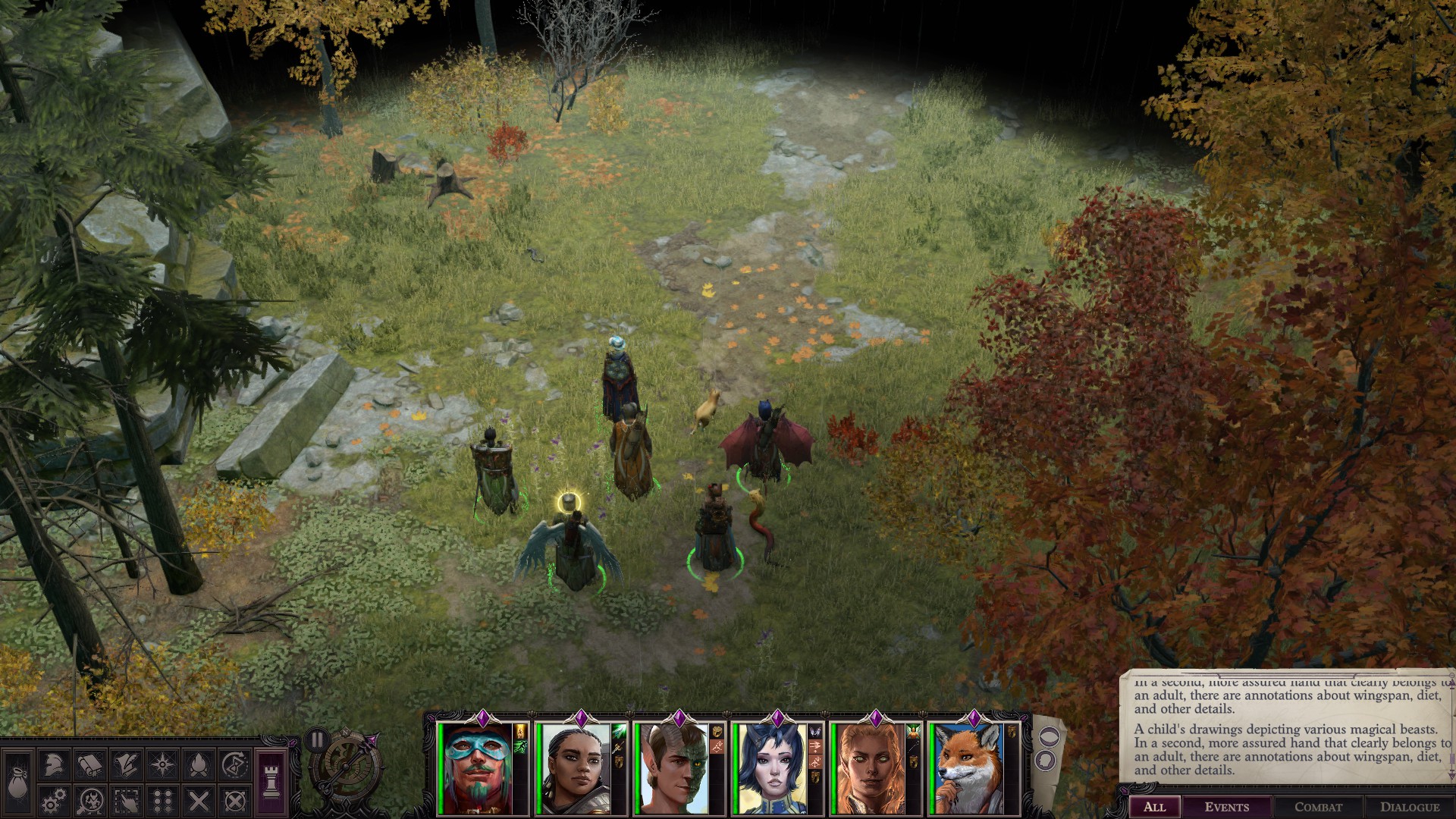
Heroes of Might & Tragic
While those pop-ups are eager to help with combat and leveling, they thin out once you're handed whole armies to manage. In an underexplained side game, your crusaders fight on a grid while their oversized general looks on from the left and occasionally casts a spell, like that one person in every group project who acts like they're contributing but isn't really pulling their weight, throwing some glitter across the poster board while the actual soldiers fight and die.
This strategy layer is a significant and demanding timesink. You have to chip away at units representing hundreds of troops for turn after turn, long after it's obvious you've won. Once I figured out the best tactics—ignoring opportunities to collect handfuls of useless specialists who just clutter the map in favor of building doomstack units of high-damage troops several hundred deep, then camping archers in the corner surrounded by knights—it stopped being such a hassle. It even became a pleasant change of pace, a fine if slight imitation of Heroes of Might & Magic. Maybe the mediocrity of the last two actual Heroes of Might & Magic games has lowered my standards.
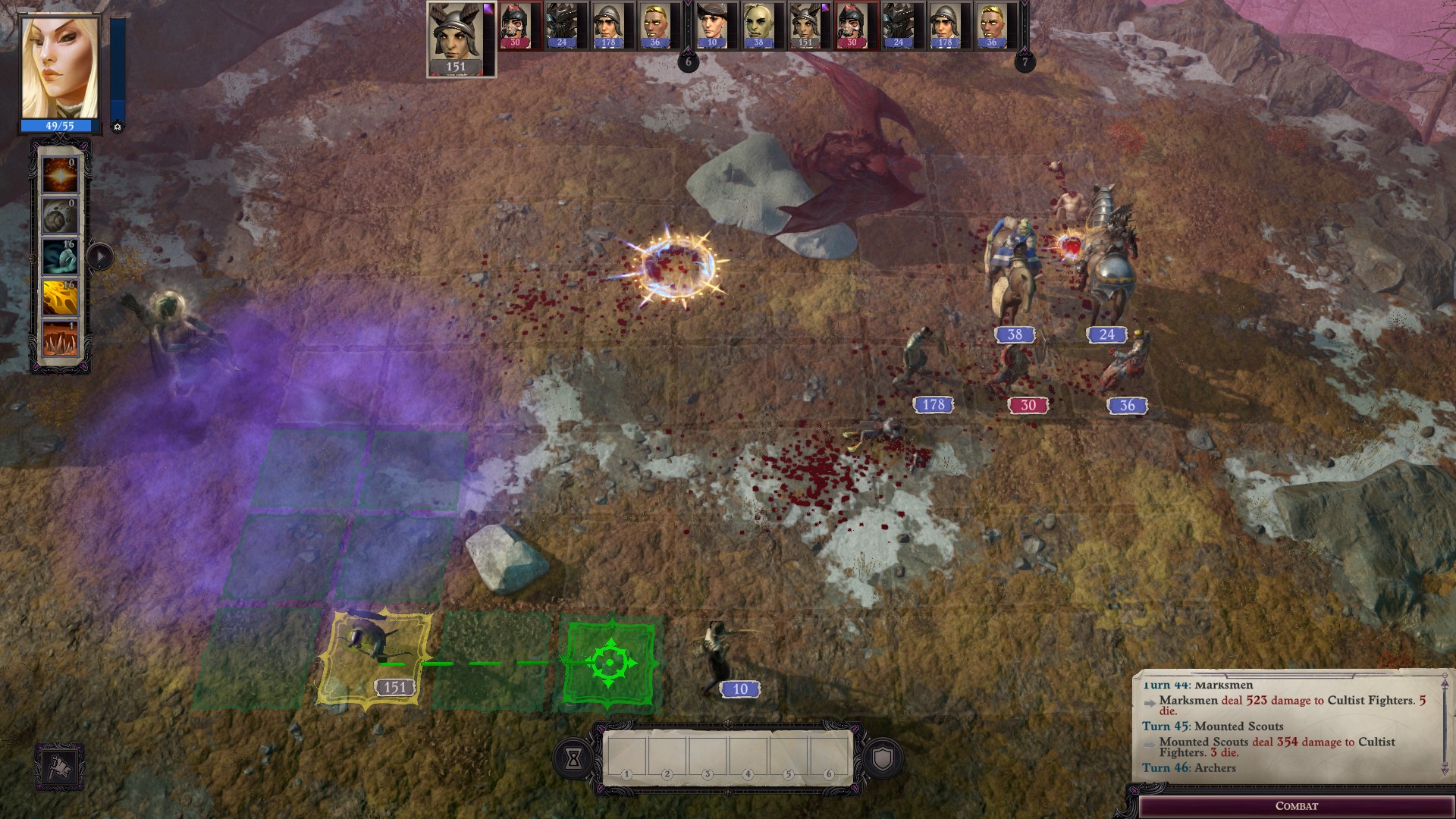
As well as managing the crusade, you end up governing several regions of the map in a version of the kingdom management system from Kingmaker. It doesn't have that game's constant flow of disasters to deal with, though, and the buildings you plonk down in settlements are more useful, which is a definite improvement. In Kingmaker, most of them felt like traps for new players to waste resources on. Another improvement is that when you're deciding which decree to pass, whether throwing a parade to raise morale or sacrificing a few hundred soldiers in a magical experiment, the results are spelled out explicitly. You won't fall down one of those game-ending death spirals that the opaqueness of Kingmaker led to.
These management systems are the bread in a sandwich with your actual adventuring in its middle, and that adventuring is tasty. Sidequests have surprising outcomes, and the main storyline takes you to besieged cities, wastelands where it rains blood, and even the Abyss itself, which is like Hell's older brother who is even more into heavy metal. You may be a crusader, but you're also a spy who goes undercover in another dimension, as well as a mayor with council meetings to attend.
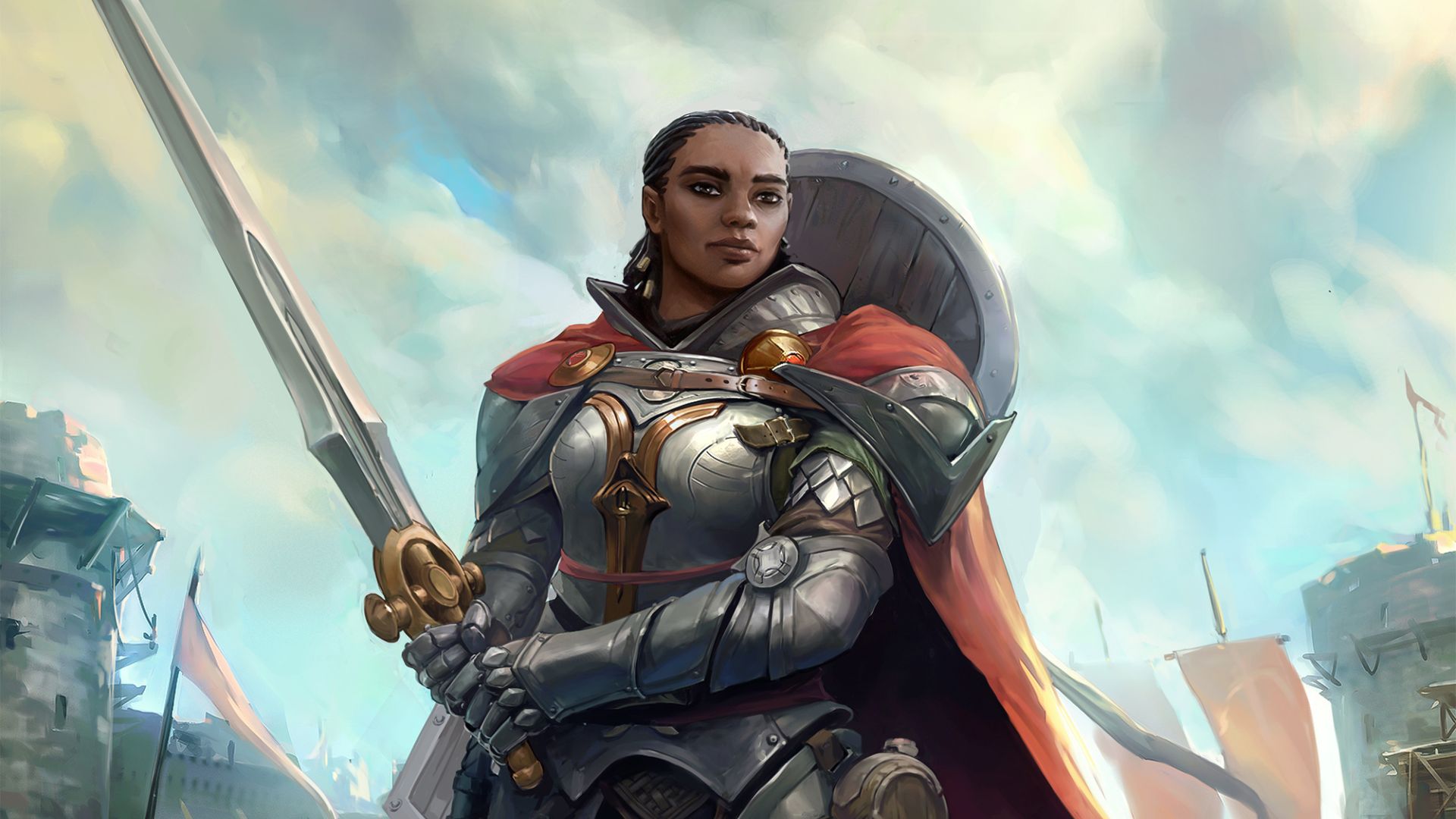
Party of six
I suspect each companion will be someone's favorite, whether they prefer the ones who subvert stereotypes (a paladin who loves drinking and chill hangs, a pragmatic victory-at-any-cost hellknight who is also a gnome), or the ones so exaggerated they came straight from anime central casting (a witch-girl whose pure innocence makes cultists change their ways, an analytical wizard who treats people like science experiments).
Wrath of the Righteous runs better than Kingmaker, and saving and loading are both much faster. The framerate dropped significantly in big cities (one made of spinning floating islands in particular), and turning down the shadows and SSAO only partially improved things. For some reason the framerate takes a dive when enemies die too, which makes the end of every fight a lurch.
The dialogue frequently references the choices you made in character creation, even which god you follow, and the companions chip in with their thoughts as you decide who to side with and whether to be a jerk or not. It's uneven though, going from paragraphs of evocative demonic grotesquerie and twisty pick-a-path storybook sequences to NPCs blandly spitting up long backstories, with the occasional sentence that reads like it was mangled by Google translate.
And all that dynamic dialogue makes moments that lack specificity stick out. In a sidequest involving elven politics full of bespoke references to my character also being an elf, an unavoidable dialogue option had me call an NPC "elf" in a way every bit as artificial as if I called you "human". Meanwhile, incognito in a demon city, I was labeled a "mystery knight" even though I was an extravagant bard in a domino mask and colorful hat. That kind of stuff happens just often enough to be distracting.
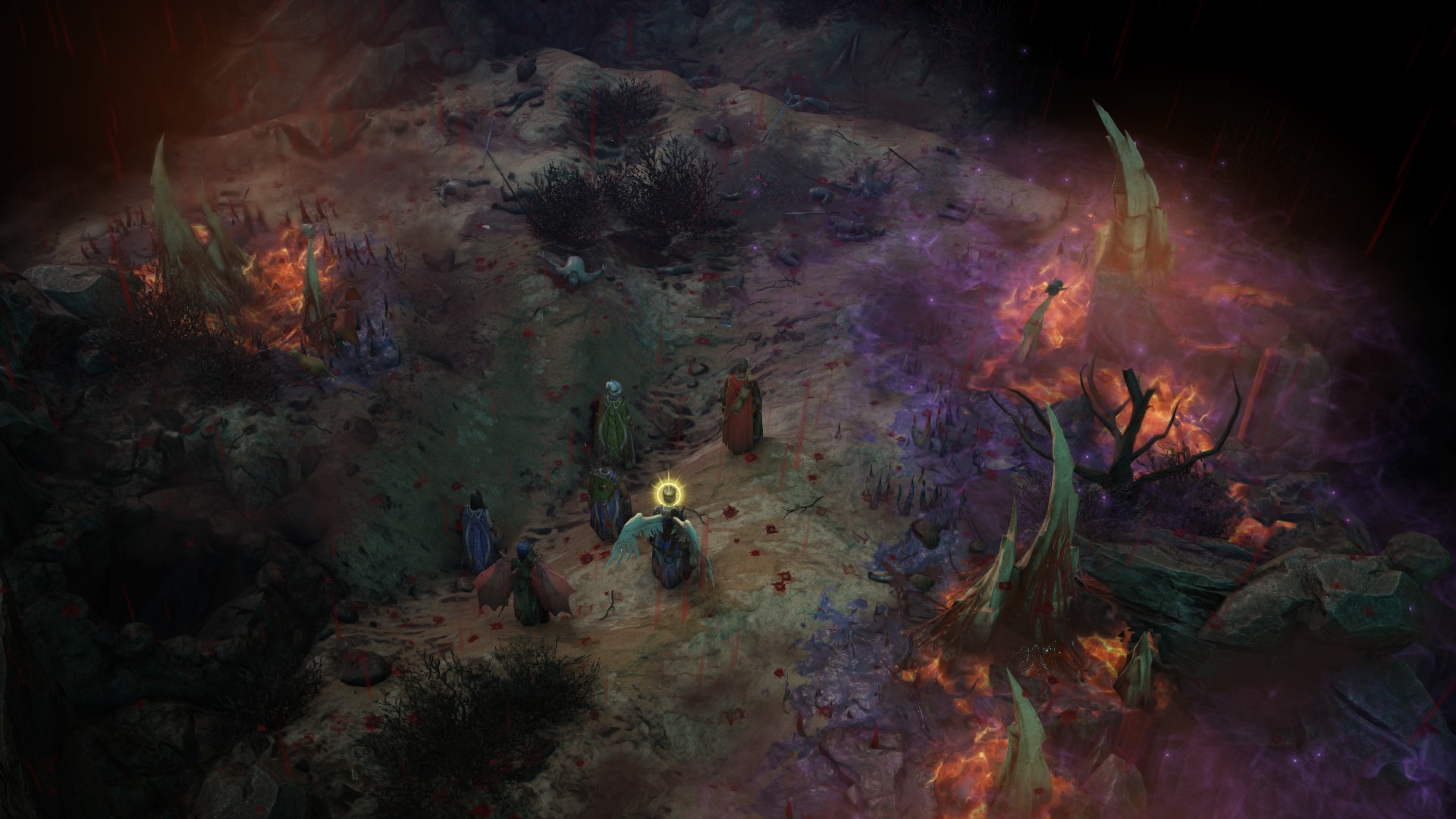
Hit and myth
The mythic paths are uneven too. These routes to demigodhood are sprinkled throughout Wrath of the Righteous, and when you choose one it bolts another layer of leveling on top of the complicated character you've made. These can turn you into anything from a demon to an avatar of law who is basically a time-travelling Judge Dredd, and you get an option to switch to another mythic path as you go. Some are tightly integrated with the rest of the game, like the angel path, where others feel like afterthoughts. The trickster's whole deal is handing out lame 'ironic' punishments at the end of quests, a deflating string of jokes that aren't funny, while the lich's core ability to raise dead soldiers is so underpowered it actually makes crusade mode harder.
Then there are the bugs. While I didn't hit many in the early chapters, later on they were frequent. Characters got stuck on the wrong side of doors when combat started, the whole party was teleported into the ground or walls, I had to reload an old save because a moveable bridge stopped moving and left me stranded. Mounted combat seems entirely broken, and whether a charge works at all is 50/50. To get past a black screen that showed up every time I killed a specific character I had to switch to windowed mode, but even that didn't help with a consistent crash at the end of the final dialogue. (I still haven't seen the outro, after replaying the ending four different ways to try to get around the issue.) All this is nothing compared to how buggy Kingmaker was at launch, but it's frustrating to see problems mount after relatively smooth early chapters.
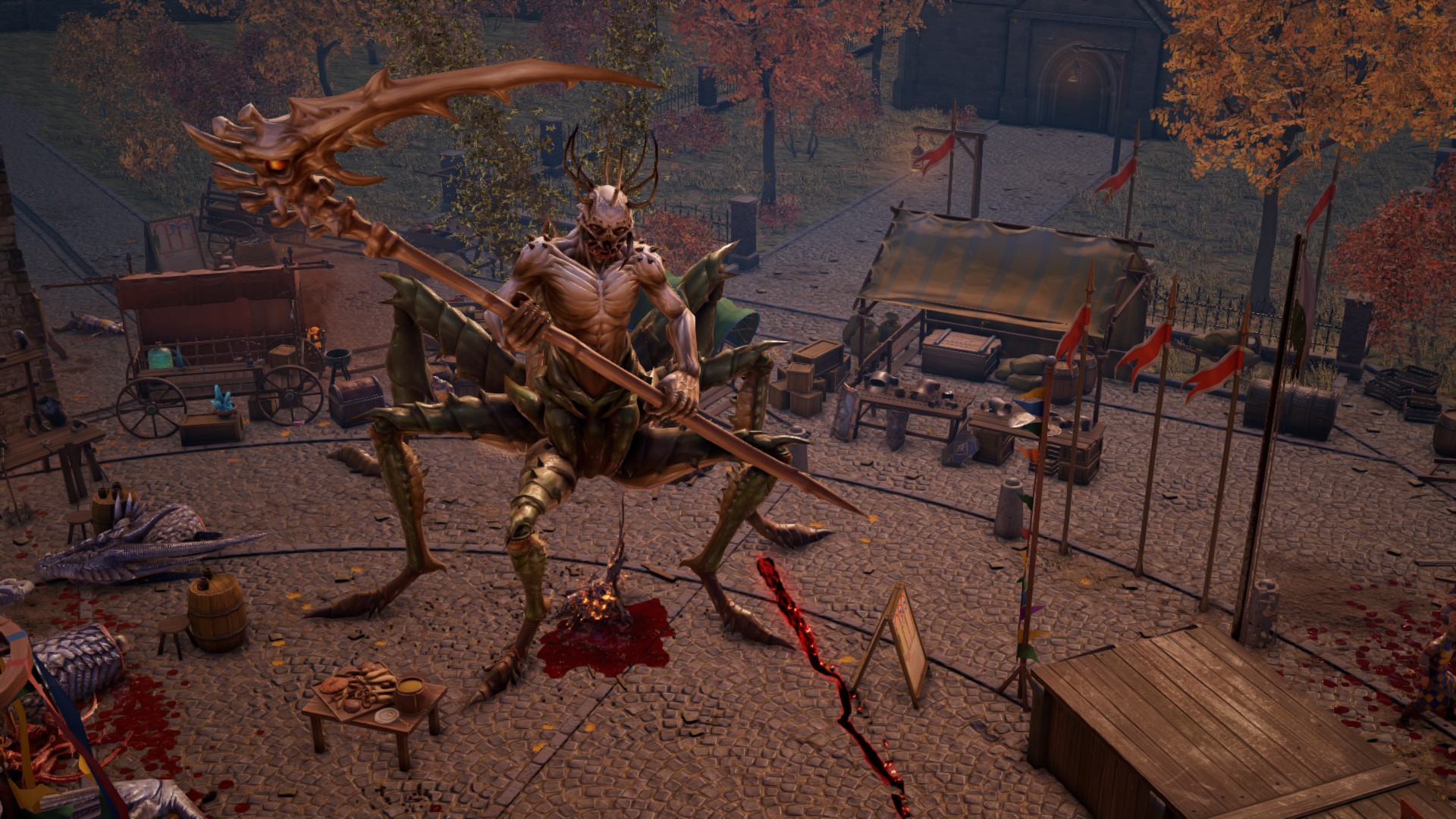
After some more patching though, Wrath of the Righteous will be well worth your time. This is a huge game, easily 100+ hours, in which you take a meticulously crafted hero, throw them into a meatgrinder of war, politics, and interplanar travel, and see how they're reshaped by it. After the most complicated character creation system I can think of, it tricks you into thinking you're done when in fact the entire game is about making a character. That size is both its strength and weakness, because it's got room for half-baked areas of story and systems that feel like you've wandered off into unmapped wilderness. But when you find the right path and are solving the world's problems while jogging across fields with your gang of colorful pals, it's like Baldur's Gate 2 never ended.
A long game of choose-your-own-chosen-one with high highs to balance the lows.

Jody's first computer was a Commodore 64, so he remembers having to use a code wheel to play Pool of Radiance. A former music journalist who interviewed everyone from Giorgio Moroder to Trent Reznor, Jody also co-hosted Australia's first radio show about videogames, Zed Games. He's written for Rock Paper Shotgun, The Big Issue, GamesRadar, Zam, Glixel, Five Out of Ten Magazine, and Playboy.com, whose cheques with the bunny logo made for fun conversations at the bank. Jody's first article for PC Gamer was about the audio of Alien Isolation, published in 2015, and since then he's written about why Silent Hill belongs on PC, why Recettear: An Item Shop's Tale is the best fantasy shopkeeper tycoon game, and how weird Lost Ark can get. Jody edited PC Gamer Indie from 2017 to 2018, and he eventually lived up to his promise to play every Warhammer videogame.
